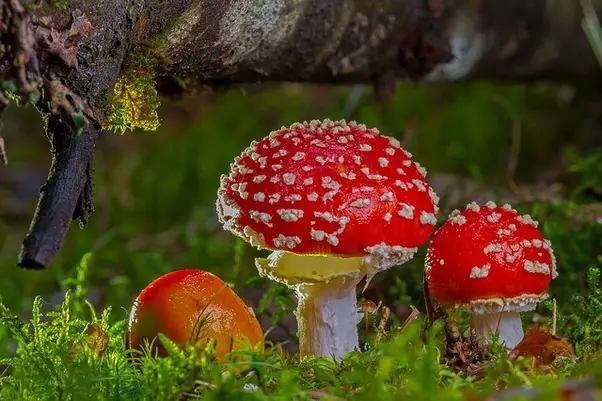What is the difference between parasite and saprophyte?
Parasite and saprophyte are heterotrophic modes of nutrition. Both are unable to produce their own food. They depend on other organisms for survival. Saprophytes are vital in the ecosystem as they release nutrients in the soil.
The main difference between parasite and saprophyte is that parasite completely depend on another organism for their nutrition while saprophytes rely on dead and decaying organic matter for their nutrition.
You May Also Like: Difference between Annelids and Roundworms

Comparison Table (Parasite vs Saprophyte)
| Characteristics | Parasite | Saprophyte |
| Meaning | They are organisms that depend on other organisms to obtain nutrients. | They are organisms that feed on the decomposing matter from dead organisms. |
| Digestion | They use intracellular digestion. | They use extracellular digestion. |
| Absorption of nutrients | They absorb nutrients through haustoria. | They absorb nutrients through the cell wall. |
| Impact | They cause harm to the host. | They do not cause harm to live tissues. |
| Feeding | They get their food from the host while it is still alive. | They feed on dead decaying matter. |
| Specialization | Most of them are specialized to depend on a certain host. | They are not specialized and can feed on a variety of substrates. |
| Examples | Plasmodium, tick, lice, fleas, roundworms, etc. | Mushrooms and bacteria. |
What is a Parasite?
They are organisms that live in or on another organism and depend on it for food and shelter. The organism that they depend on is the host. The nutrients are taken at the expense of the host. This can cause devastating effects to the host. It may result in death.
There are ectoparasites that suck blood from the skin of the host and there are internal parasites that live inside the body. The ectoparasites include; ticks, lice, fleas, and mites. Internal parasites include; roundworms, thorny-headed worms, and flatworms.
Parasitic, plants get food from other plants without necessarily producing their own food through photosynthesis. Haustorium is a special organ found in parasitic plants that absorb nutrients for the plant.
What is a Saprophyte?
They are fungi or bacteria which depend on dead decaying matter. They are decomposers that are very vital in the ecosystem. They recycle materials in the ecosystem. They are important in the carbon cycle, phosphorus cycle, nitrogen cycle as recyclers of dead material.
Reproduction occurs through simple cell division. They secrete enzymes onto the dead decaying matter so that they may externally digest the food and absorb the nutrients through their cell wall. The simple nutrients can also be absorbed by plants.
The nutrients such as iron, phosphorus are released in the soil by saprophytes. Most saprophytes are not specific on what they feed on. They feed on a large variety of substrates. They process organic substances from both autotrophic and heterotrophic organisms.
Main Differences between Parasite and Saprophyte
- Parasites are organisms that entirely depend on other organisms for nutrients and shelter while saprophytes are organisms that rely on the dead decaying matter for nutrients.
- Parasites harm the host while saprophytes do not harm the host.
- Parasites use intracellular digestion while saprophytes use extracellular digestion.
- Parasites absorb nutrients through haustoria while saprophytes absorb nutrients through their cell wall.
- Parasites get food from their host while it is still alive while saprophytes get their food from dead decaying matter.
- Parasites are specific on what they feed on while saprophytes feed on a large variety of substrates.
Similarities between Parasite and Saprophyte
- Both parasites and saprophytes depend on other organisms for survival.
- Both are heterotrophs.
In Conclusion
Both parasites and saprophytes depend on other organisms for survival. Parasites obtain nutrients from other organisms while they are still alive. In some cases, they may cause devastating effects to the host whereby the host may become sick or even die. Saprophytes depend on dead decaying matter.
They are vital in the ecosystem as they decompose the dead matter which is used in the soil as nutrients for the growth of other plants. They also keep the environment conducive as the dead bodies will not be found all over.
The main feature that makes parasites different from saprophytes is how the dependence on their host.
Sources and references: